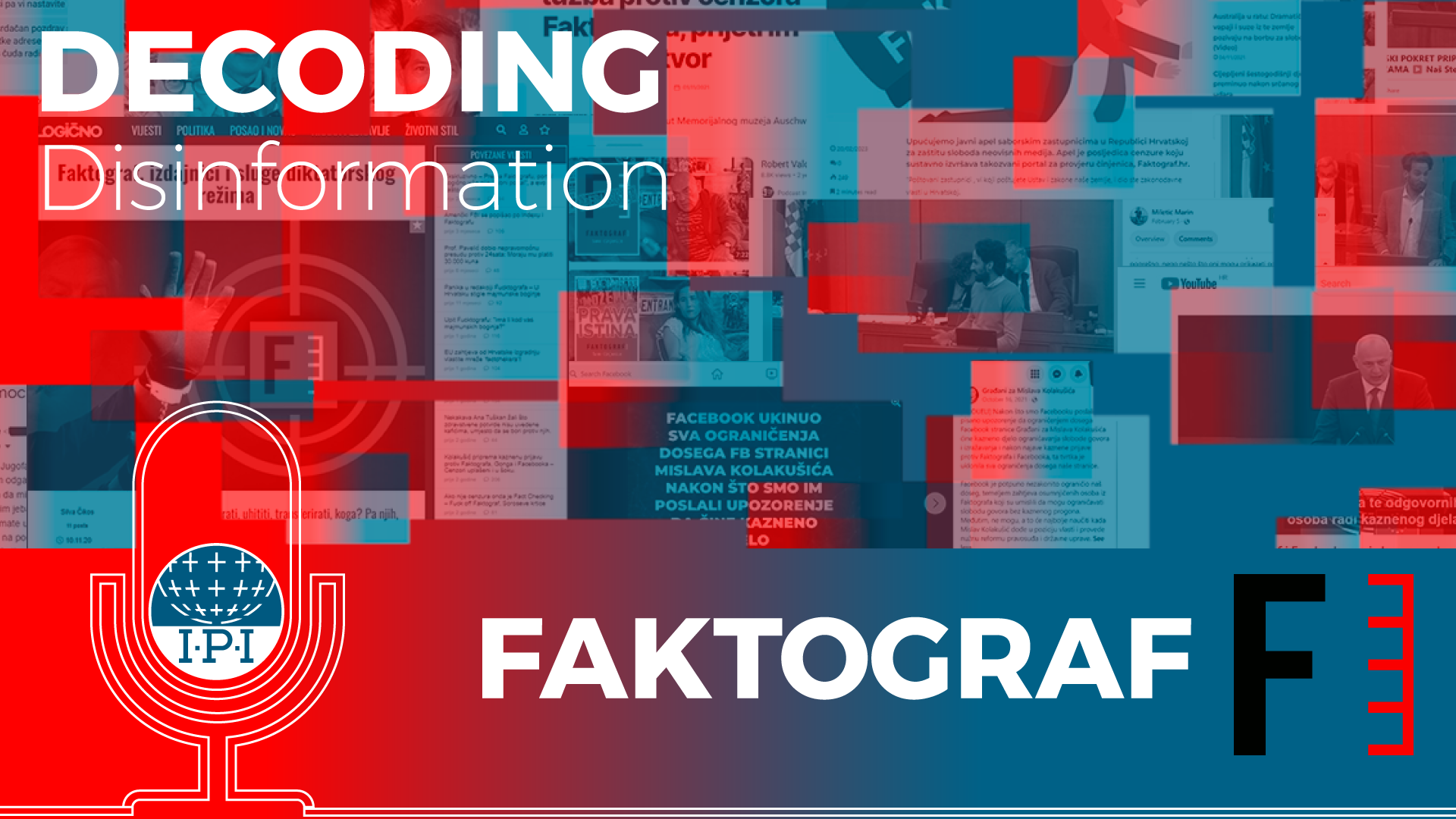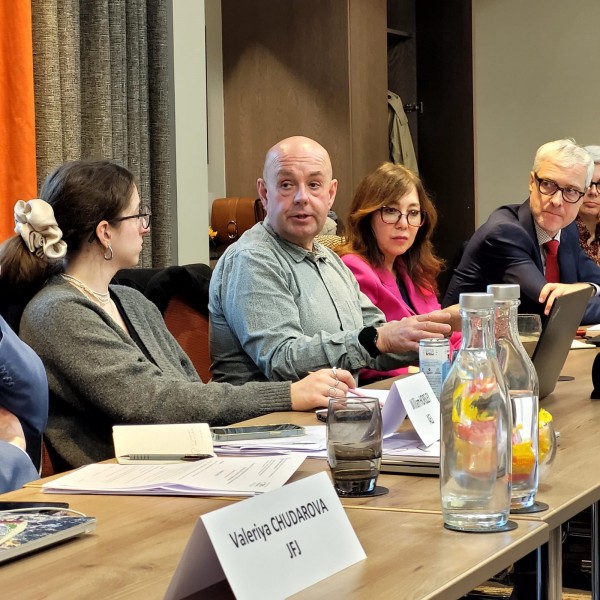Media outlets and fact-checking organizations are increasingly the target of online attacks and smear campaigns by populist and extremist groups. The next four episodes will feature the results of the investigation that IPI, Faktograf and the German daily taz have conducted in the last few months. Each case study looks into the type of attacks, the narratives, and the network of actors behind smear campaigns and acts of intimidation intended to silence journalists and fact-checkers in Spain, Germany, Hungary and Croatia.
This episode dives into the case study of Faktograf, a fact-checking organization in Croatia. Since its foundation in 2015, Faktograf has been targeted with online threats. However, when the coronavirus pandemic brought the world to a halt in 2020, the attacks became an avalanche. As a partner of Meta’s Third-Party Fact-Checking Program in Croatia, Faktograf was at the forefront of flagging false information on Facebook.
The attacks on Faktograf – as often happens in these cases – were not limited to social media. They faced SLAPP lawsuits and were targeted by propaganda websites that labelled the outlet as a “censor”. The vitriol against Faktograf soon risked spilling over into physical violence. In November 2022, police arrested a man accused of plotting a terrorist attack against different influential figures in Croatia. Petar Vidov, editor-in-chief of Faktograf, was included in the man’s hitlist.
Listen to the interview with Vidov and Tajana Broz, program coordinator at Faktograf, who conducted the investigation of this case study.
Guests: Tajana Broz and Petar Vidov, programme coordinator and editor-in-chief at Faktograf, respectively.
Producer and editor: Javier Luque, head of digital communications at IPI.
Related links mentioned in the episode:
- Case Study: Faktograf – Full report
- Survey final results and recommendations
- IPI-led Decoding Disinformation project
Other episodes in this series:
Episode 2: How journalists investigate the far right
Episode 3: Fact-checkers targeted by populists in Europe
___________
This podcast series is part of the project Decoding the disinformation playbook of populism in Europe, which is supported by the European Media and Information Fund, managed by Calouste Gulbenkian Foundation.
Disclaimer:
The sole responsibility for any content supported by the European Media and Information Fund lies with the author(s) and it may not necessarily reflect the positions of the EMIF and the Fund Partners, the Calouste Gulbenkian Foundation and the European University Institute.



